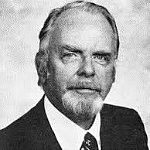Quotes about Humanism
Humanism is a philosophical premise that includes such concepts as:
1. Man is autonomous and independent
2. Man is his own center of reference
1. Man is self-generative and self-sufficient
2. Man has the potential to do anything he sets his mind to
3. Man is the cause of his own effects
4. Man is the source of his own activity
5. Man has a free-will to choose anything he desires – “sovereign will”
6. Man is innately good
7. Man is the subject and object of his own world
8. Man is the solution to his own problems
9. Man deserves to indulge his personal aspirations, personal gratifications, and personal reputation (cf. I Jn. 2:16)
10. Man is his own god
In the process of striving to fulfill our needs and satisfy our desires, the church has slipped into a philosophy of “Christian humanism” that is flawed with self-love, self-esteem, self-fulfillment, and self-glory. There appears to be scant concern about worshiping our glorious God on His terms. So-called worship seems little more than some liturgy (high or low) equated with stained-glass windows, organ music, or emotion-filled songs and prayers. If the bulletin didn’t say “Worship Service,” maybe we wouldn’t know what we were supposed to be doing. And that reflects the absence of a worshiping life- of which a Sunday service is to be only a corporate overflow.
Humanism is the philosophy that says humanity has unlimited potential. Give people enough time and education, and they can solve any problem. A stepsister to existentialism, humanism urges everyone to self-authenticate, to be someone.
Jesus is right. It is not the Christian doctrine of heaven that is a myth, but the humanistic dream of utopia (Roy Clements).
This is the humanist dilemma. They say, “You come from nothing and you’re going to nothing, but in between you have great significance.” It doesn’t make sense at all.
The Christian’s Supreme Boast, Jer. 9:23-24, 1997. Pastor, Author, President, Keep Believing Ministries.
Humanism, man beginning only from himself, had destroyed the old basis of values, and could find no way to generate with certainty any new values. In the resulting vacuum the impoverished values of personal peace and affluence had come to stand supreme.
The doctrine of most “evangelical churches” today is the humanist theology…the exalted doctrine of man espoused by Erasmus, sharply defined by Arminius, made popular by the Wesleys, and given final polish by many religious psychologists of our time.
Humanism has taught that man is the measure of all things. Man is the ultimate, autonomous norm; that is, he is a law unto himself. His reason, not subservient to divine revelation, is the basis of ethics.





